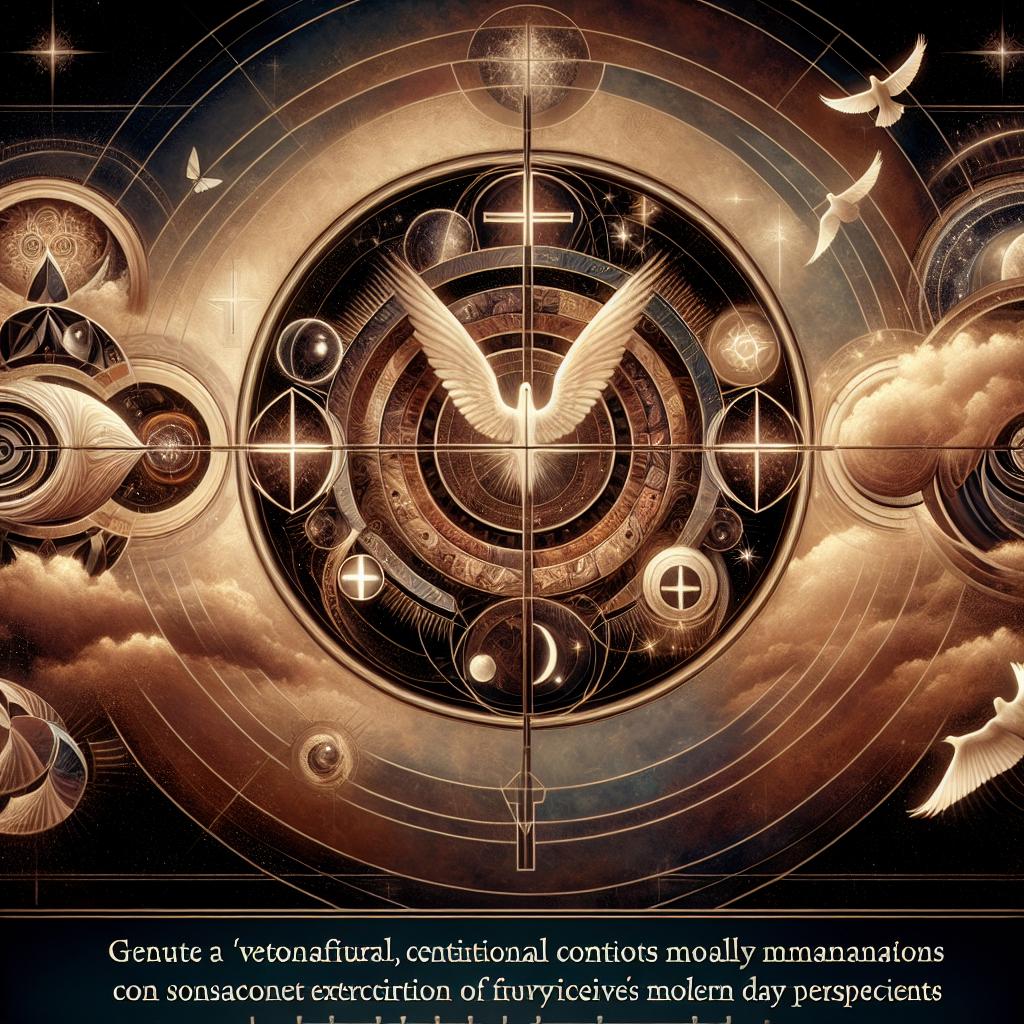
Dennis L. Englin: 5 Inspirational Lessons for Christian Living
Published: 08 September 2024
The Biblical and Scientific Truths of Creation
Introduction
In this article, we will explore the biblical and scientific truths of creation from a young-earth, Christian, Creationist perspective. We will delve into the foundational chapters of the Bible and uncover key points that help us understand the world around us and the Gospel itself. Throughout this article, we aim to simplify complex concepts, explain technical terms, and incorporate analogies or everyday examples to make the content accessible to a general Christian audience.
Point 1: The Biblical Account of Creation
The opening chapters of the Bible provide us with a detailed account of how God created the heavens, the earth, and all living things in six days. According to Genesis, God spoke everything into existence, including light, water, land, plants, animals, and ultimately humanity. This account lays the foundation for our understanding of creation.
Why This Matters: Understanding the biblical account of creation helps us grasp God's sovereignty and power as the Creator. It establishes a framework for our understanding of the world and our place in it.
Think About It: Reflect on the awe-inspiring power of God's spoken word that brought everything into existence. Consider how this impacts your view of God as Creator.
Point 2: The Scientific Evidence for a Young Earth
Scientific evidence supports a young-earth perspective, aligning with the biblical account of creation. Many lines of scientific inquiry point towards a relatively recent origin for the earth and its features. For instance, geological evidence reveals that rock layers were formed rapidly rather than over millions of years. The presence of soft tissue in dinosaur fossils also challenges the notion of long ages.
Why This Matters: The scientific evidence for a young earth reinforces the credibility of the biblical account and affirms our faith in God's Word.
Think About It: Contemplate how scientific discoveries can complement our understanding of biblical truth. Consider how these findings strengthen your confidence in the accuracy of the Bible.
Point 3: The Complexity of Life Points to a Designer
The intricate design observed in living organisms is a compelling argument for the existence of a Creator. From the molecular machinery within cells to the interdependent ecosystems, life exhibits remarkable complexity that defies naturalistic explanations. The presence of irreducible complexity, where all components must be in place for a biological system to function, strongly suggests intentional design.
Why This Matters: Recognizing the complexity of life highlights the wisdom and intelligence behind its creation. It affirms our belief in a purposeful Creator who designed every aspect of creation.
Think About It: Consider the intricacies of your own body and how it functions harmoniously. Reflect on how this points towards an intentional designer rather than mere chance.
Point 4: The Origin of Species
The biblical account of creation states that God created distinct kinds of plants and animals, each reproducing after their own kind. This understanding aligns with scientific observations that reveal limited variability within species. While there is evidence for adaptation and speciation, no observed instance demonstrates one kind evolving into another.
Why This Matters: Recognizing the boundaries within which species operate reinforces the uniqueness and intentionality of God's design. It also challenges the notion of evolution as an explanation for the diversity of life.
Think About It: Consider the vast array of plant and animal species and their intricate designs. Reflect on how these diverse forms point towards a Creator who carefully crafted each one.
Point 5: The Global Flood
The biblical account of Noah's flood provides a plausible explanation for many geological features observed on Earth. The flood, as described in Genesis, would have caused rapid sedimentation, fossilization, and tectonic activity, resulting in the formation of rock layers and vast fossil deposits we see today. This catastrophic event offers an alternative explanation to long-age interpretations of Earth's history.
Why This Matters: Understanding the global flood helps us make sense of geological features and supports the biblical account of a young earth. It also emphasizes God's judgment and redemption throughout history.
Think About It: Reflect on the global impact of a catastrophic flood and how it would have shaped the Earth's surface. Consider how this event highlights both God's judgment and His mercy towards humanity.
Point 6: The Gospel and Creation
The biblical account of creation is intricately linked to the Gospel message. The fall of humanity into sin, as described in Genesis, sets the stage for our need for salvation through Jesus Christ. By recognizing God as our Creator, we acknowledge His authority over our lives and our responsibility to live according to His design. Understanding creation enhances our appreciation for the redemptive work of Christ.
Why This Matters: Recognizing the connection between creation and the Gospel deepens our understanding of God's plan for salvation. It helps us grasp the significance of Jesus' sacrifice on the cross.
Think About It: Contemplate the profound connection between creation, sin, and redemption. Reflect on how understanding creation strengthens your faith in the redemptive work of Jesus Christ.
Conclusion
Exploring the biblical and scientific truths of creation provides a solid foundation for our understanding of both the world around us and the Gospel itself. The biblical account aligns with scientific evidence, supporting a young-earth perspective and affirming our belief in a Creator who intentionally designed all things. Recognizing the complexity of life, the boundaries within species, and the significance of Noah's flood deepens our appreciation for God's wisdom and sovereignty. Ultimately, understanding creation enriches our understanding of the Gospel message and points us towards a deeper relationship with our Creator.
